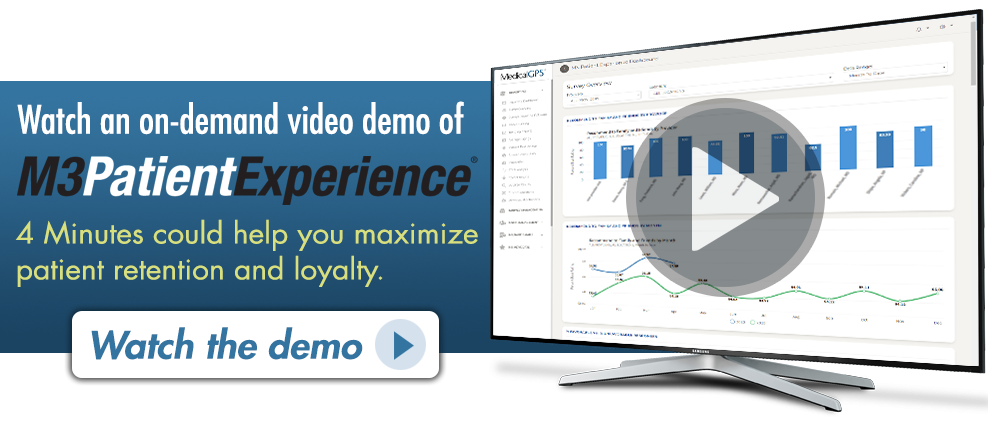 In today’s healthcare world physician practices have the ability to put their financials, clinical outcomes, and patient satisfaction data under a microscope more potent than any that have existed in the practice of medicine before. As databases grow and evolve, physicians gain increasing power over the use of clinical and service related data. This is a stunning victory for physicians, healthcare administrators, and patients alike. As service related data is analyzed, effective communication surfaces as one of the cornerstones of the doctor-patient relationship. It has been well documented over the years that the failure to communicate accounts for an enormous volume of healthcare litigation every year.
In today’s healthcare world physician practices have the ability to put their financials, clinical outcomes, and patient satisfaction data under a microscope more potent than any that have existed in the practice of medicine before. As databases grow and evolve, physicians gain increasing power over the use of clinical and service related data. This is a stunning victory for physicians, healthcare administrators, and patients alike. As service related data is analyzed, effective communication surfaces as one of the cornerstones of the doctor-patient relationship. It has been well documented over the years that the failure to communicate accounts for an enormous volume of healthcare litigation every year.
Physicians tend to practice defensive medicine when they are exposed to litigation, so it’s critical that healthcare organizations keep their malpractice risk under control. Medicine is as much an art as it is a science, and it hinges on interpersonal skills. A physician-patient relationship rooted in compassion is not only good for clinical outcomes, but helps to reduce healthcare litigation. An NCBI meta study found that communication improved diagnosis and perceptions of care—aspects that directly impact healthcare litigation risk.
The business of medicine has entered a new age. M3-Patient Experience® helps physicians, and physician practice owners/operators, protect against healthcare litigation. Given the capability to examine the patients’ perceptions of their provider’s interpersonal skills, as well as other key touch points of the patient experience, M3-Patient Experience® works as an early-warning detection system sending real-time alerts to decision makers whenever the patient has a less-then-desirable experience. Physicians and other healthcare providers receive comprehensive comparative dashboards (updated nightly) with benchmarks showing how they compare to MedicalGPS’ database as well as the national AHRQ CG-CAHPS database. Having concrete data, on-going, reassures physicians when they compare favorably, which can help minimize the tendency to practice defensive medicine and, as a result of early detection, avoid healthcare litigation.
Crunching Numbers
With the huge assortment of data analytics available to today’s healthcare professional it’s easy to place too much focus on data collection and data analysis instead of implementing proactive changes to service quality in response to that data. Big data, on their own, are useless until they’re crunched into meaningful small data. This is where M3-Patient Experience® technology excels. Intelligent metrics are generated, which are in turn compared to national comparative databases, letting organizations compare their patient experience and patient satisfaction data against similar peer groups, geographically and by specialty. Each component of the patient experience is examined, identifying areas for service improvement. Provider’s interpersonal skills, including the ability to effectively communicate with patients, are benchmarked, trended over time, and examined in way that allows early identification of potential problems that could potentially lead to healthcare litigation.
Heads-up dashboards are designed to allow leadership the opportunity to quickly identify areas of service excellence, and service failures. High performing practices are highlighted, which fosters sharing of best practices.
Patient Satisfaction, Patient Experience, Patient Loyalty: The Holy Grail of Healthcare
Patients are more compliant when they feel heard, and doctors have more time to help patients when they’re not researching and answering patient complaints. The American Journal of Medicine found that physicians with the highest number of malpractice suits also have the highest number of patient complaints, and lower patient satisfaction survey scores. Healthcare organizations simply cannot survive in today’s healthcare environment unless they have their finger on the pulse of their patients — the patients’ perception of the patient experience.
With the advent of the internet, on-going, comprehensive timely patient feedback is a reality that allows healthcare leaders to determine the root cause of service failures. Managers are alerted when patients are dissatisfied, leading to service recovery soon after the patient encounter before further damages are churned up. There is, after all, no litigation-risk-reduction method more potent than service excellence that leaves the patient happy. Analytics have cleared new pathways in healthcare, benefiting millions of patients and organizations across the nation.


